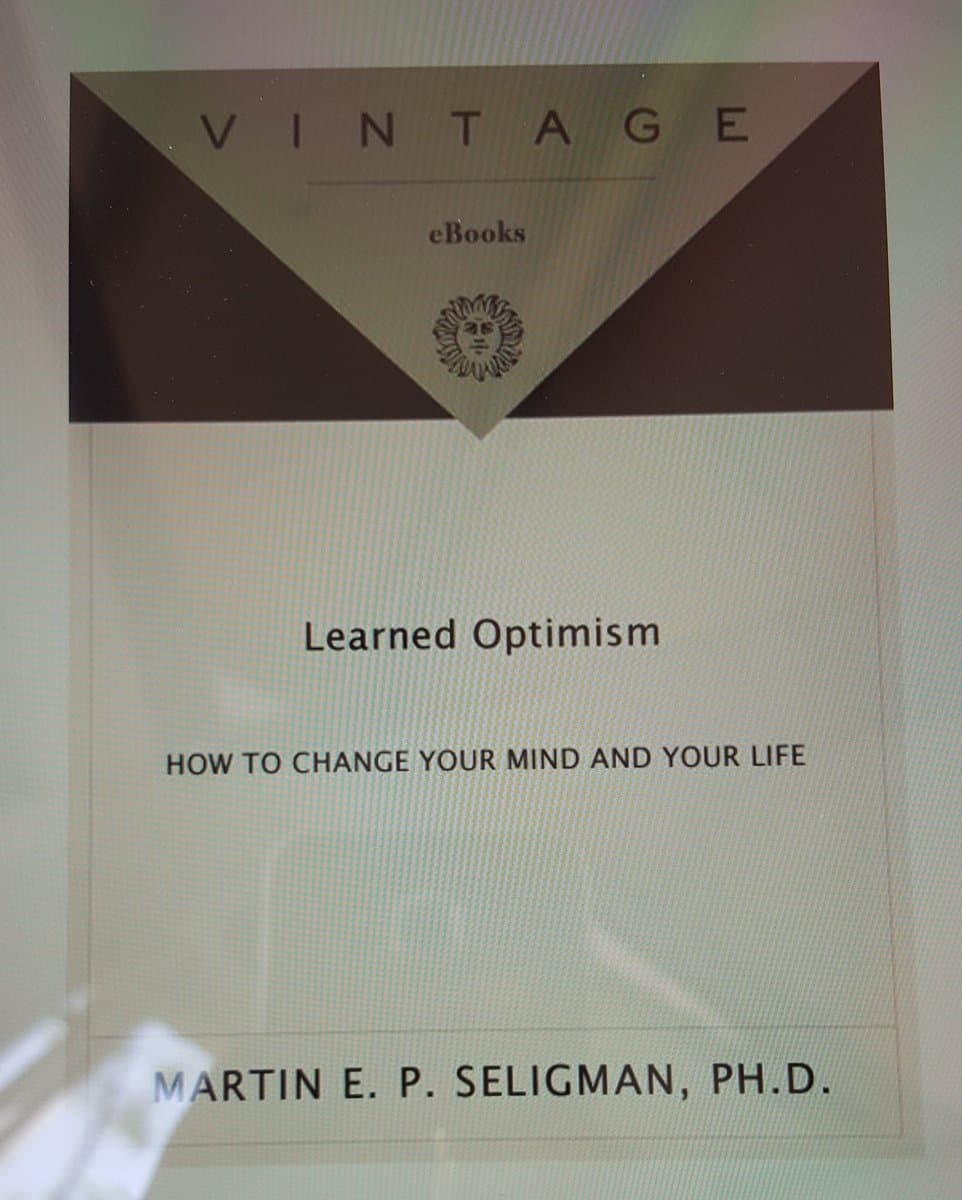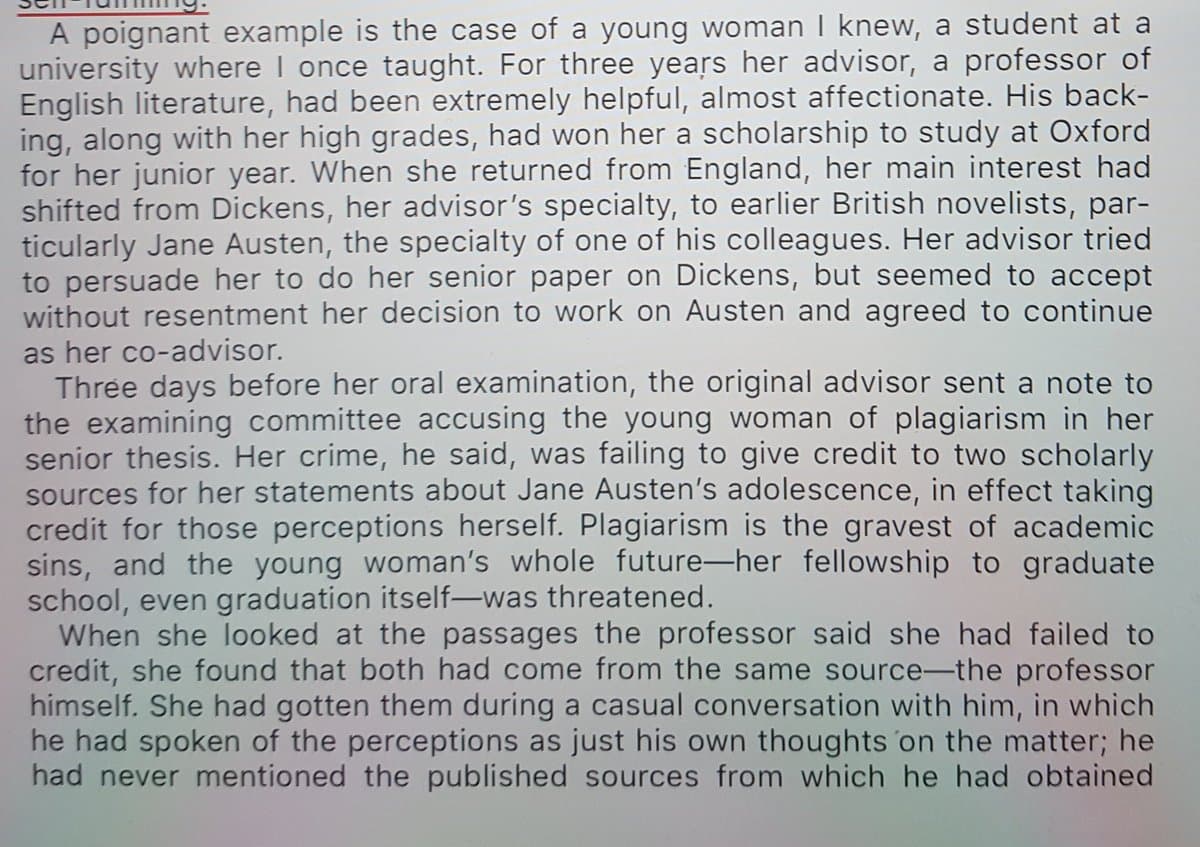🧵 View Thread
🧵 Thread (23 tweets)

#nowreading Learned Optimism, Martin Seligman https://t.co/66iXbfbLIX


"When I first began to work on learned optimism, I thought I was working on pessimism." Customary for researchers with clinical psychology background to focus on what's wrong with people + how to fix it, rather than what's right + how to make it better

"Happiness" is scientifically unwieldy When we want to be happy, we want the... 1. "Pleasant life" - maximize positive emotion (hedonism?) 2. "Engaged life" - maximizing use of your strengths, talents (Flow?) 3. "Meaningful life" - serving something greater that you believe in

Individualism. A worldview with the Self at the center makes personal failure almost inconsolable. When your grandparents' generation failed, they had their relationships with each other, with extended families, with communities, with God. (Sebastian Junger made similar points)

"~30+ years ago, the emblematic children's book was The Little Engine That Could, about persisting and overcoming obstacles. Now many books are about having high self-esteem." Self-esteem is not intrinsically bad, but inflating it is bad when those expectations clash with reality

How you feel about yourself probably shouldn't be more important than how well you are doing in the world (socially, etc). It can be an addictively gamed/manipulated metric - violent criminals, gang leaders, etc tend to have high self-esteem.

Life is full of rejections and failure. Children who are taught practical optimism (thinking skills) before puberty are significantly less likely to be moderately-to-severely depressed in the face of social and sexual rejections, poorer-than-desired academic performance, etc

Pessimists tend to believe that bad things will last a long time, will undermine everything they do, and are their own fault Optimists believe defeat is a temporary setback, causes are contained, don't blame themselves, and perceive bad situations as challenges to try harder

Pessimists give up more easily, get depressed more often Optimists do better in school, at work, on the playing field, have better health, age better (I feel like there's a catch here somewhere about being realistic / faced with Truly Bad things...?)

HELPLESSNESS: when nothing you choose to do affect what happens to you. You can effortlessly turn a page, but are helpless to manually contract your pupils. Life begins in utter helplessness. A newborn cannot help himself; he is almost entirely a creature of reflex.

1st 3-4 months, rudimentary control of arm and leg motions. Flailing refines into reaching. Then crying becomes voluntary (to parental dismay). This new power is overused until it stops working. 😂 1st year ends with two miracles of voluntary control: 1st steps and 1st words

"Mild pessimism has its uses- but 25yrs of study convinced me that pessimistic prophecies are self-fulfilling." If we habitually believe that misfortune is our fault, is enduring, undermines everything we do, more of it befalls us. We get depressed more, accomplish less, get sick

Horrible story about an abusive, selfish, jealous asshole of a professor who sabotaged his student's career. She was too scared, guilty, pessimistic to fight back, even though it was absolutely not her fault. This is so hideous https://t.co/XTC6ijWZkt


30 years ago, psychology was more deterministic. People were assumed to be products of their environment, either pushed by internal drives or pulled by external events. Freudians focused on unresolved childhood conflict, Skinner fans focused on external reinforcement, etc

In the late 60s the focus shifted to individual expectation, preference, choice, decision, control, helplessness. Behaviorism seemed dogmatic. People seemed to have more choices than before. (I wonder about the counterculture's influence on this)

The biomedical view "glibly generalizes from the small number of hardcore, inherited depressions that usually responds to drugs to the much more common, everyday depressions that afflict so many lives". There's supposedly less evidence that medication addresses these milder cases

In chapter 2, Seligman talks about his father's strokes, and how he felt rejected and alone in military school (surrounded by boys from old money). I admire authors who do this, who open themselves up to share their lives with their readers. I resolve to do the same

Seligman was reading Freud when he read about how dreams about teeth falling out symbolized guilt over masturbation. "I wondered how he knew me so well." 😂 he determined in that moment that he wanted to spend his life asking questions like Freud's

Reflecting on the helpless dogs being subjected to experiments: "Helplessness was all around us- from the urban poor to the newborn child to the despondent patient with his face to the wall. My father had his life destroyed by it. But no scientific study of helplessness existed"

Seligman's findings upset Skinner's fans. A venerable professor wrote him a note to say a draft of Seligman's article made him "physically sick". One of Skinner's disciples accosted Seligman in the men's room to say "animals don't learn THAT anything, they only learn responses"